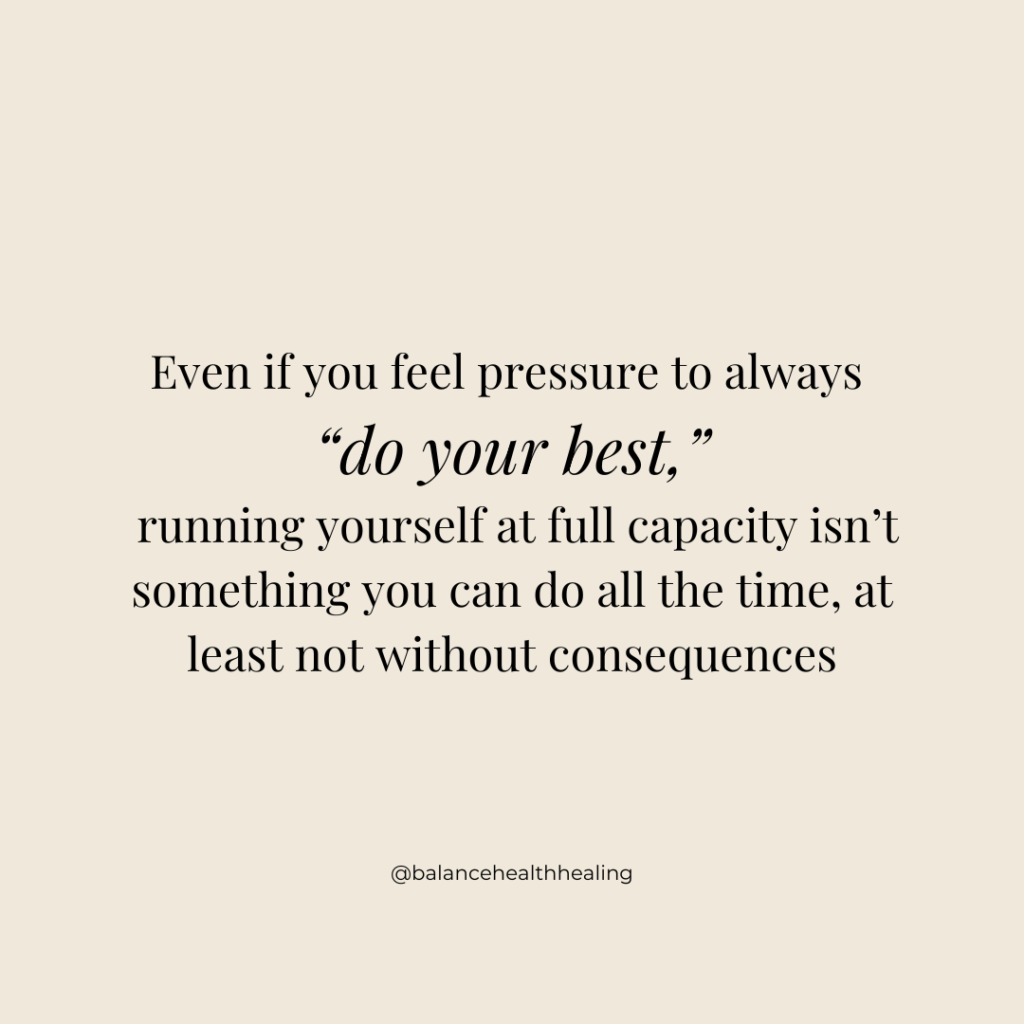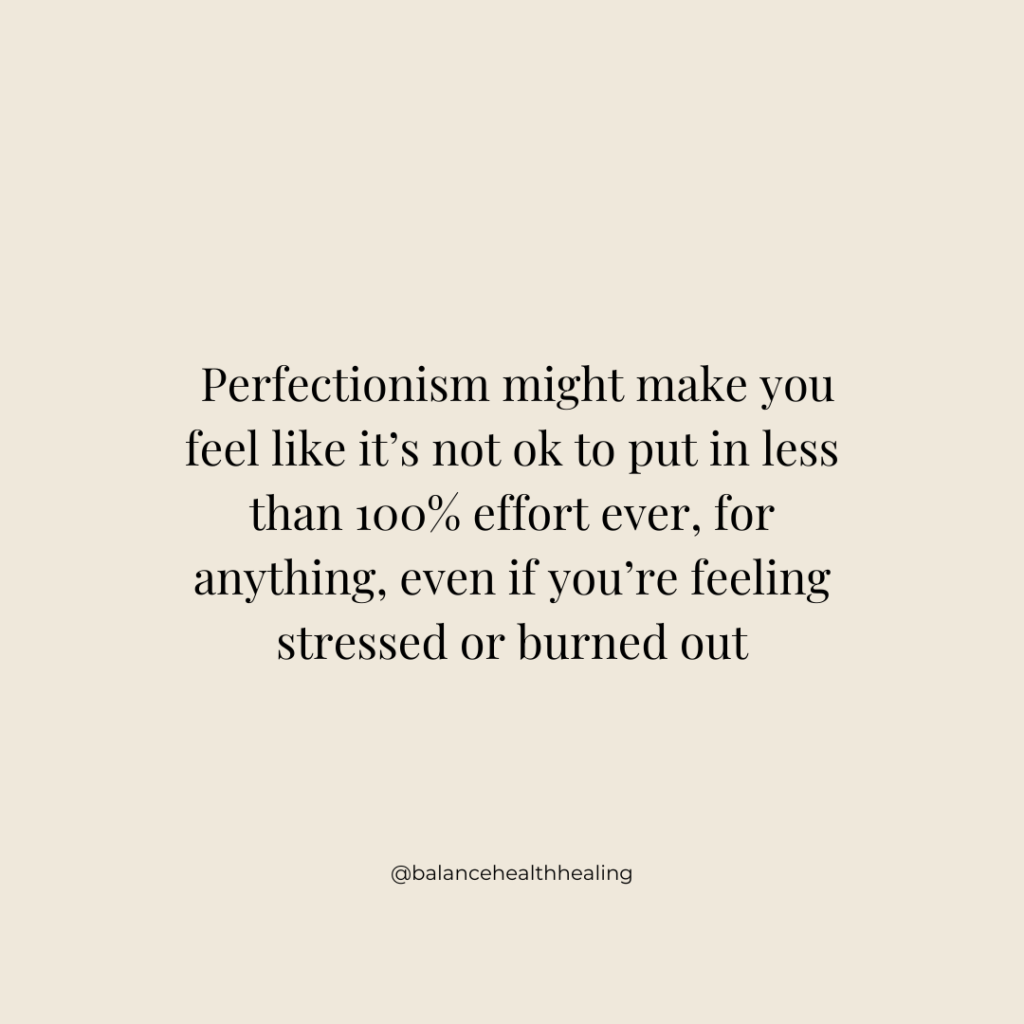My clients know I use a LOT of metaphors in therapy. It’s just how I roll! Here is a metaphor that I’ve shared with a couple of clients lately that might resonate if you’re dealing with perfectionism.
Let’s pretend you’re driving a car. What if when you were driving, you felt like you always had to “do your best?” In some ways, “your best” might mean driving at maximum speed and power, engine revving at full capacity, and really showing everyone else on the road what your car can do. What if you felt like you had to push your car to do its “best” ALL the time?
If you were to drive this way in real life, of course, there would be some negative outcomes. Even if there were no traffic laws to pay attention to, constantly pushing your vehicle to perform at its “best” would actually do damage to the engine, the tires, the transmission, the brakes, etc. Helping your car perform well in the long run, and extending the life and utility of its engine, tires, etc. might actually mean driving at a capacity that is far below your car’s “best.” Sure, you might want to occasionally push your car to show off its full potential in certain situations, like if you were drag racing, trying to outrun a tsunami, or auditioning for a stunt driving role (please don’t do any of those things unless absolutely necessary), but for the most part, taking care of your car would mean driving fairly conservatively.
certain situations, like if you were drag racing, trying to outrun a tsunami, or auditioning for a stunt driving role (please don’t do any of those things unless absolutely necessary), but for the most part, taking care of your car would mean driving fairly conservatively.
Even if you feel pressure to always “do your best,” running yourself at full capacity isn’t something you can do all the time, at least not without consequences. You might feel like you have to stay up all night to do “your best” on a project for school. You might feel the need to be extremely rigid about your exercise routine in order to do “your best” physically. You might feel like you have to say “yes” to every opportunity to help someone in order to be the “best” friend/child/sibling/partner you can be. Perfectionism might make you feel like it’s not ok to put in less than 100% effort ever, for anything, even if you’re feeling stressed or burned out.
Remind yourself that, like a car, you aren’t meant to run at full capacity all the time. In fact, most of the time, it’s more effective and sustainable to pace yourself, and conserve energy for the long road ahead. Life sometimes does happen in bursts when we need, and benefit from, using our full capacity. However, more often than not, going at a speed that lets you get things done AND take care of yourself will end up feeling more sustainable and satisfying than pushing yourself to do your absolute “best.”

